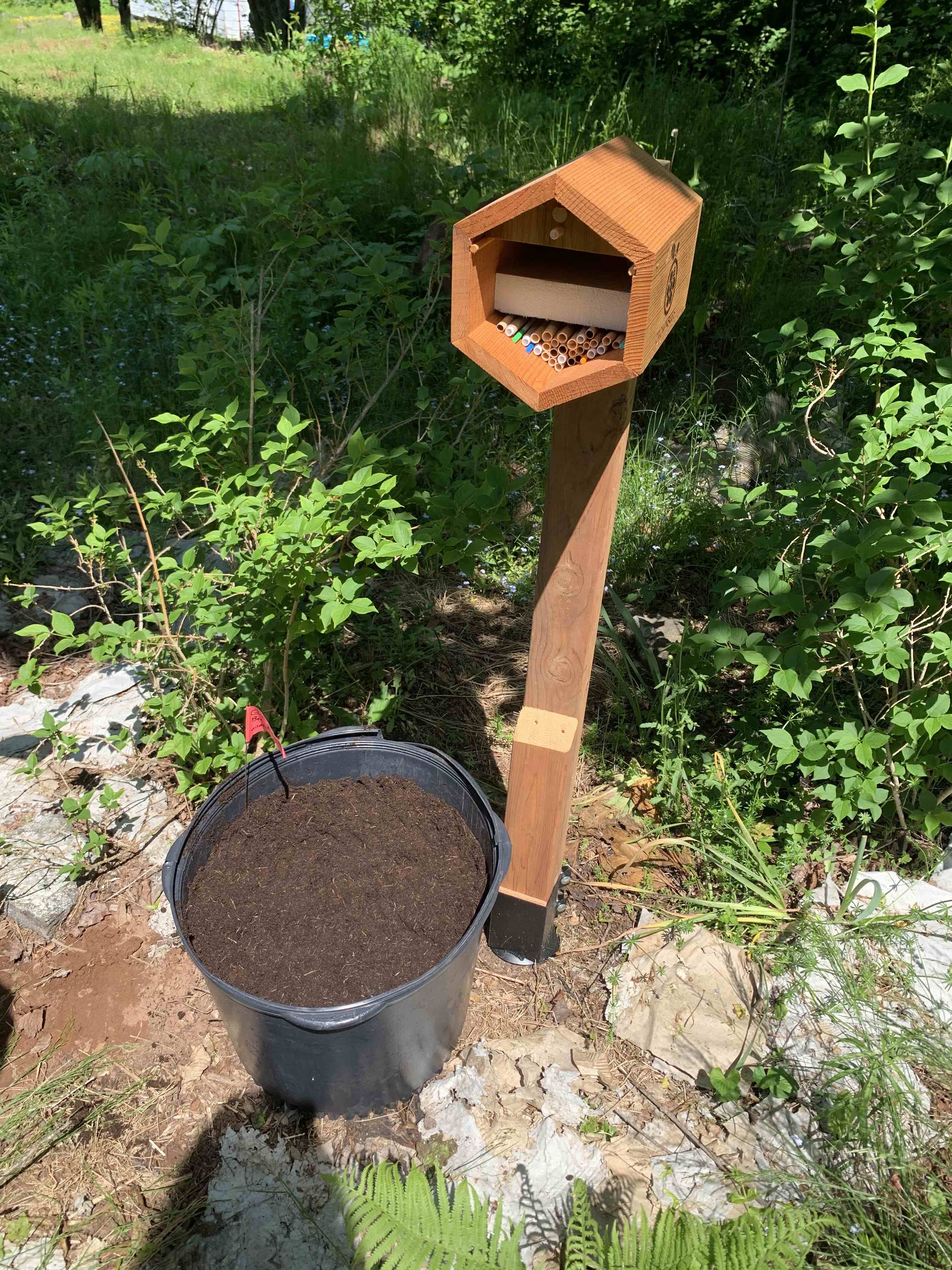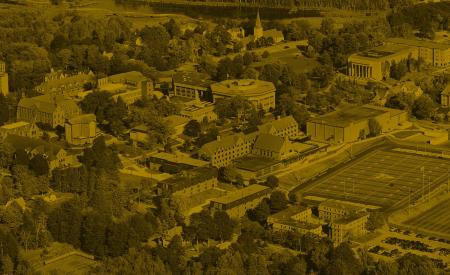Biology and sociology student Chloe Jackson documents wild bee diversity in Sackville
A new project was launched in Sackville last summer to document local wild bee diversity. Led by Mount Allison biology professor Dr. Emily Austen, Wild Bees Sackville is a two-year research project funded by the New Brunswick Innovation Foundation (NBIF) Research Assistantships Initiative that seeks to evaluate the impact of residents’ efforts in improving bee habitats and to assess the significance of human-built naturalized sites in supporting bee populations.
“Because they help plants reproduce, wild bees are critical to healthy ecosystems,” says Austen. “A major challenge in bee conservation, though, is that we don’t have good data on the distributions of most species. This project will help to address that gap.”
Five students worked on the project in 2023, including fourth-year sociology and biology student Chloe Jackson. She received funding through Mount Allison’s Independent Student Research Grant (ISRG) program to look at the effects of bee hotels on wild bee populations in town.
“There’s a lack of knowledge on what bee species are present in Sackville and also a lack of literature on bee hotels and their effectiveness as a tool for bee conservation in small towns,” says Jackson. “A lot of the research has focused on large urban areas and commercial-level implementation of these augmented habitats, but I wanted to assess whether bee hotels, when implemented at an individual scale by homeowners in a rural context, could bolster wild bee populations.”
Bee hotels are man-made structures designed to provide nesting sites and shelter for native bee species. These structures typically consist of a series of small cavities or tunnels, often made from materials like wood, which mimic the natural nesting environments of bees.

In total, the wild bee team installed 10 bee hotels in the home gardens of community members who volunteered to participate in the study. Wild bees at these gardens are being compared to another 10 gardens where hotels were not installed.
“Community support for this project is really strong” says Austen.
While it is too early to draw conclusions from the ongoing project, it has already provided some compelling insights.
“We definitely saw a correlation between native wildflower growth and wild bee abundance,” says Jackson, noting that the retention pond on Lorne Street stood out as a hotspot for both native flora and bee populations.
Jackson says the project gave her the opportunity to acquire a range of skills, from identifying different bee species to netting and cataloging insects, data analysis, and most importantly, communicating complex scientific ideas in an accessible manner.
“I’m also a sociology student, so a lot of the biology skills might not be super relevant outside of my hobbies, but I think the scientific communication and knowledge mobilization aspects of the project will be relevant for social research.”
Austen says that by supporting the project, both Mount Allison’s ISRG program and the NBIF are contributing to the development of scientific expertise in the region.
“Beyond contributing much-needed data to our knowledge of wild bee distributions, this project provides meaningful experiential learning experience for several undergraduate students,” she says. “Last summer, four students got to participate in community outreach, experimental design, data collection, and data analysis, and developed field, lab, and communication skills. Both the ISRG and the NBIF are helping to build scientific skill in our province.”
To learn more about the Wild Bees project, visit www.sackvillewildbees.com
Mount Allison's ISRG program provides students entering their final year with an intensive research or creative activity experience from May to August.



